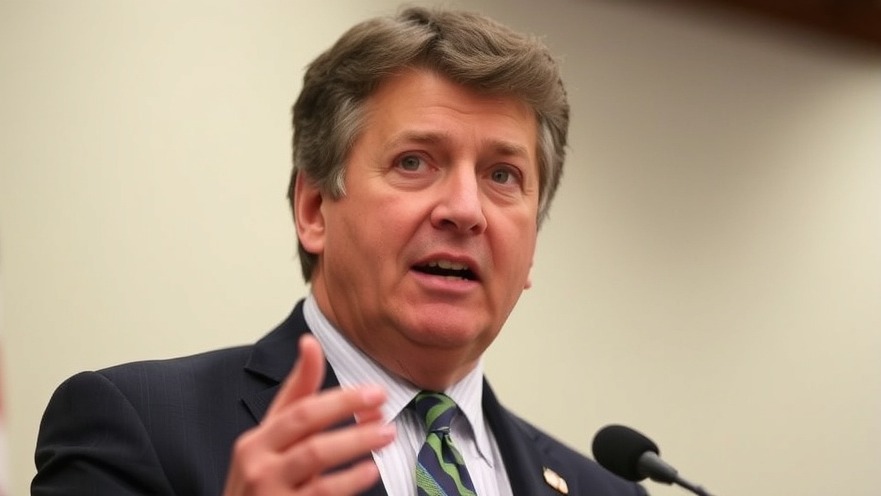
Michael McCaul's Departure: A Notable Shift in Texas Politics
Longtime GOP Representative Michael McCaul announced he will not seek reelection, marking a significant shift in Texas's political landscape. Serving in Congress since 2005, McCaul has become a well-known figure, particularly recognized for his positions on national security and immigration. His decision has sparked conversation about the future political dynamics in Texas, a state that has increasingly influenced the national stage.
Understanding McCaul's Impact and Contributions
During his tenure, McCaul, who chairs the House Homeland Security Committee, has worked on several high-profile initiatives, such as enhancing border security and counterterrorism laws. Under his guidance, there have been significant legislative efforts to address the complexities of immigration, which resonate deeply with Texas residents who live near the U.S.-Mexico border.
His decisions often reflect the sentiments of east Texas communities, emphasizing issues that matter to constituents, including economic development and education reform. Given Texas’s position as a major player in national elections, McCaul’s departure could open up opportunities for new political leaders who may bring a different perspective to these ongoing issues.
Future Implications for Texas GOP
McCaul's exit presents a pivotal moment for the Texas GOP. With more than a decade of experience, his leadership has shaped party strategies and stances. Looking forward, political analysts speculate on how this departure will impact the GOP's ability to maintain or potentially shift its influence in a state that has been trending more purple in recent elections.
Emerging candidates will likely discuss key issues that resonate with voters in Texas, such as healthcare, economic growth, and educational policies, aligning their campaigns with contemporary concerns that matter to Texas constituents from cities like Austin to Dallas.
Voter Reactions: Emotions and Expectations
The reaction from voters has been mixed, with many expressing sadness over losing a long-serving representative who has been a reliable voice in Congress. Others see this as an opportunity for new leadership to emerge, potentially addressing the evolving needs of the electorate. The coming election cycle could bring fresh ideas, enabling younger candidates to connect more effectively with voters seeking change.
Candidate Profiles: Who Might Fill McCaul's Shoes?
As Texas prepares for the upcoming elections, various names are surfacing as potential candidates to replace McCaul. Individuals from both established backgrounds and grassroots movements are positioning themselves in hopes of galvanizing support from frustrated voters eager for change.
Among the potential successors, there are individuals with diverse profiles: experienced political figures from urban centers like Houston and Austin, and newcomers with fresh, innovative policies poised to challenge the status quo. It remains to be seen which candidate will resonate most with the electorate, potentially reshaping Texas's political scene.
Conclusions: The Future of Texas Politics
With McCaul stepping aside, Texas politics may face transformative moments in the near future. The change invites reflection on the current state of representation and the voices that are needed in Congress to navigate the crucial issues that Texans care about today.
This political shift also offers voters an opportunity to re-evaluate their priorities, demanding candidates who reflect their values and aspirations for Texas's future. As we approach the elections, it is essential to stay informed about candidates and their platforms, ensuring that the next representative echoes the voice of their constituents.
As Texas navigates this new chapter, we encourage you to explore various candidates running in your area and make an informed decision when casting your vote. The landscape of Texas politics is changing, and your vote is crucial in shaping its future.
 Add Element
Add Element  Add Row
Add Row 



Write A Comment